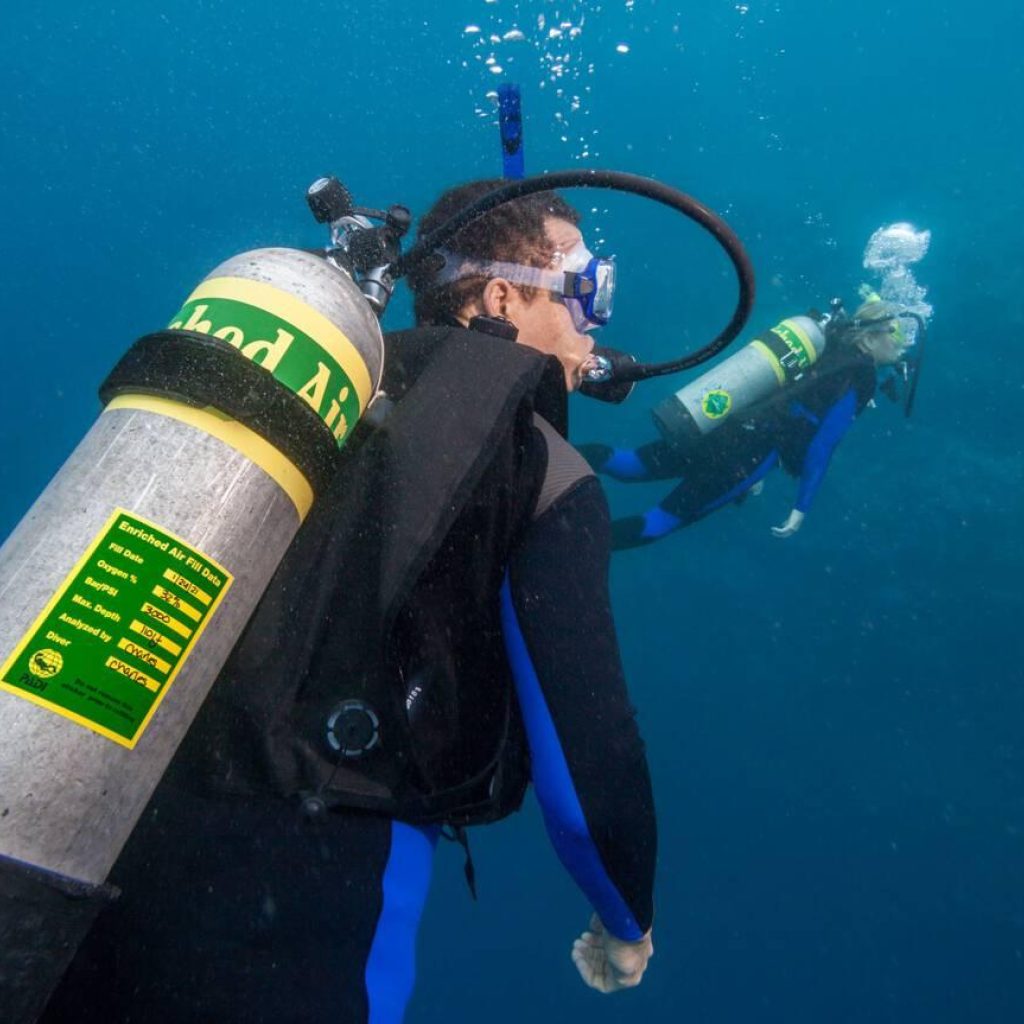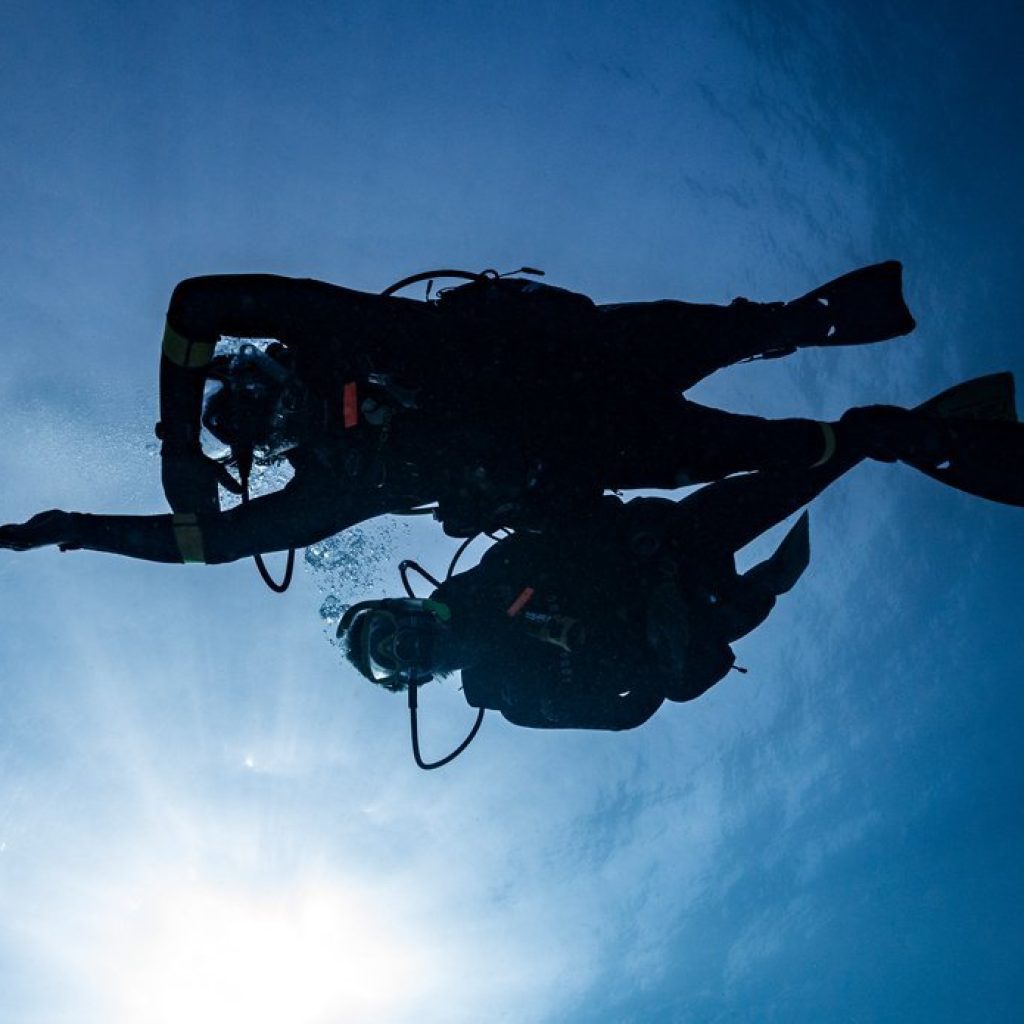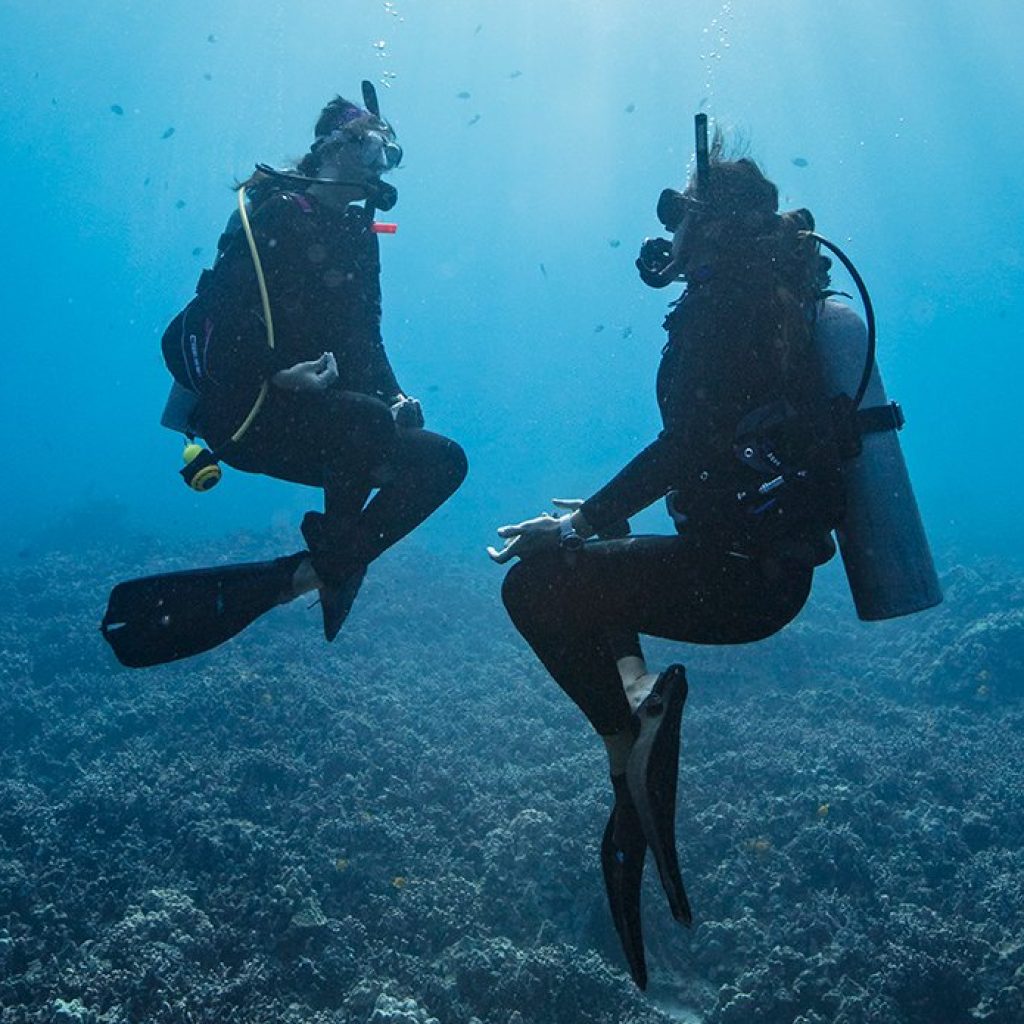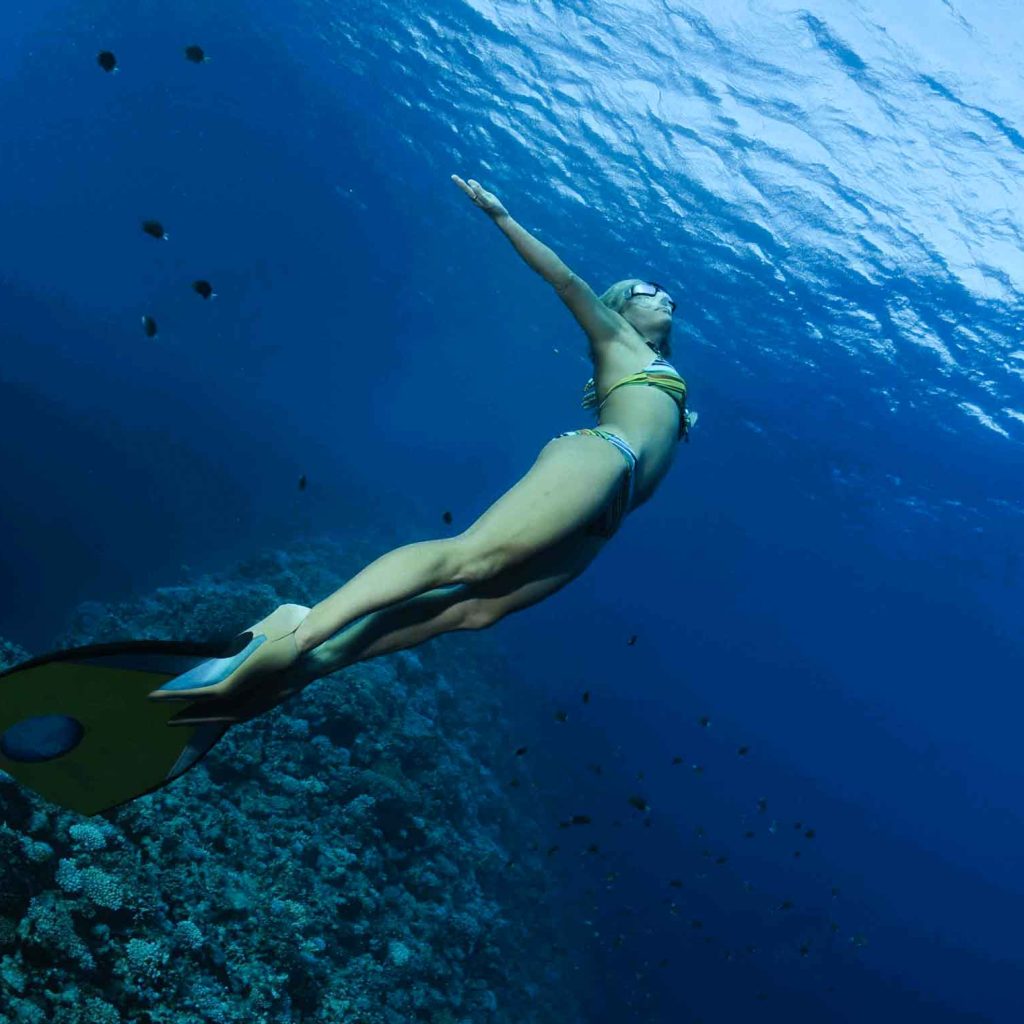Dive into a New World: Unlock the Magic of Night Diving with Sambo Diving Center
Picture this: you glide effortlessly through the ocean’s embrace, not beneath the sun’s warm gaze, but under the moon’s ethereal glow. Bioluminescent plankton illuminates your path, casting an otherworldly dance of light. Nocturnal creatures emerge, revealing a hidden world teeming with life unseen in the daytime. Welcome to the enthralling realm of night diving, accessible to you with the PADI Night Diver Course at Sambo Diving Center.
As a certified diver, your adventures don’t have to end when the sun sets. Dive deeper into your passion with this program, designed to equip you with the knowledge and skills to safely explore the underwater world after dark. Open to any certified PADI Open Water Diver or higher, who is at least 12 years old, this 3-day course offers a captivating blend of theory and practice:
Knowledge Development:
- Master the night: Learn critical procedures for buoyancy control, navigation, and communication in low-visibility conditions.
- Unravel the mysteries: Discover effective night diving techniques, including signaling with your torch and perfecting buddy system practices.
- Conquer the darkness: Delve into safe ascent and descent procedures, mastering navigation under the stars.
- Be prepared: Explore equipment considerations and emergency protocols unique to night diving.
- Become a nocturnal expert: Understand how marine life transforms at night, recognizing changes in behavior and identifying new species.
Open Water Dives:
- Put theory into practice: During three thrilling night dives, you’ll hone your skills under the watchful guidance of our expert instructors.
- Preparation is key: Learn pre-dive procedures, ensuring a smooth and safe transition into the inky depths.
- Master the night dive: Develop essential skills and techniques, learning to focus on what truly matters in this unique environment.
Experience the Transformation:
Imagine revisiting your favorite dive site transformed by the magic of night. Witness an entirely different cast of characters come alive as you encounter nocturnal marvels – from shy eels peeking out of their lairs to mesmerizing displays of bioluminescence.
Ready for an Adventure?
At Sambo Diving Center, our passionate instructors are dedicated to making your night diving experience unforgettable. We provide comprehensive training, top-notch equipment, and unwavering support, ensuring you have the confidence and skills to explore the wonders of the ocean after dark.
Don’t wait any longer! Sign up for the PADI Night Diver Course today and unlock a whole new world of underwater exploration. Let Sambo Diving Center be your guide as you embark on this exciting journey into the captivating realm of night diving.

























